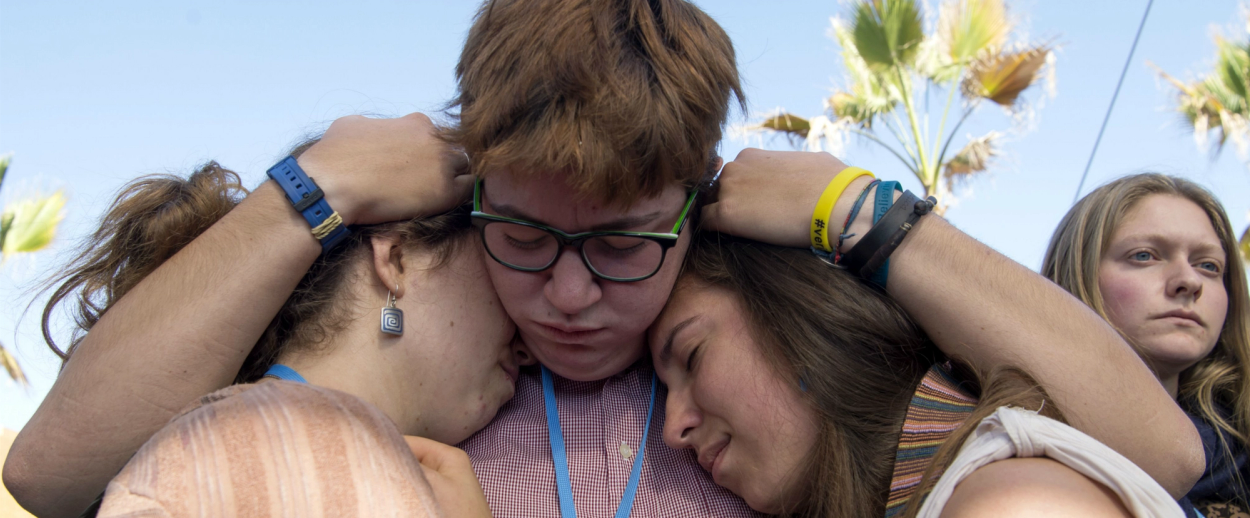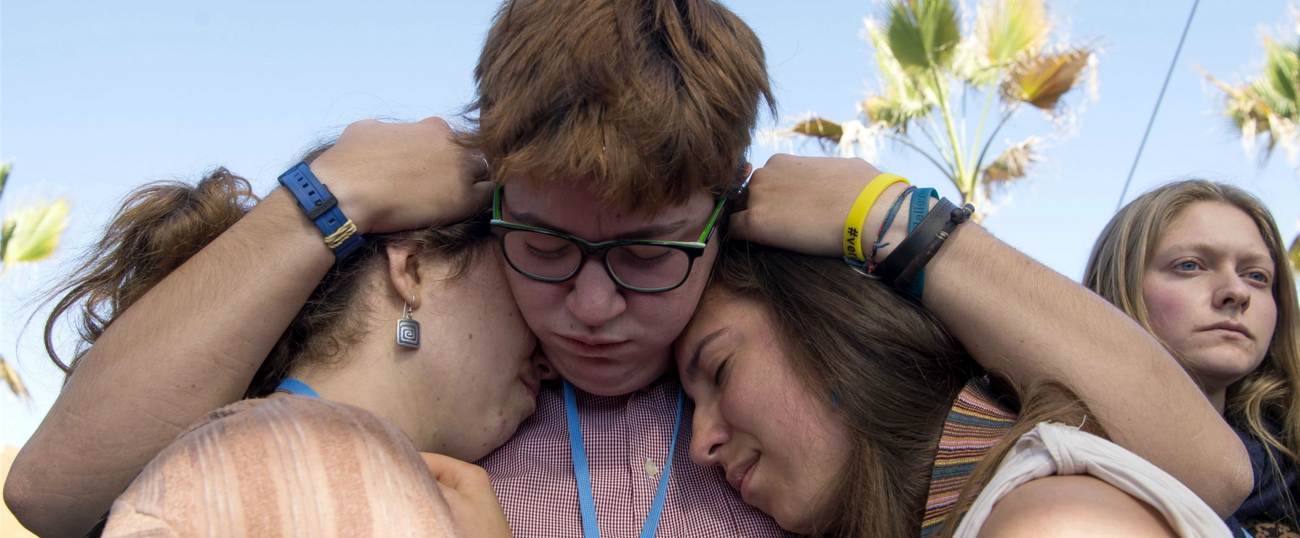The Case for Hope
On my 40th birthday, contemplating life—and the value of compassion—in Trump’s America




I turned 40 today, and I spent the first few hours of my birthday staring at the television screen in disbelief. It is late at night as I write this, and, like many Americans, I am overwhelmed with emotion. I am terrified for what the future holds. I am ashamed that so many of my countrymen opted to elevate a racist, misogynistic bully to the highest office in the land. I weep for America, and I have no idea what I will say to my children when they wake up in the morning and ask how the man who has said so many hateful things about so many of us still managed to win the trust and support of so many others.
I’m a journalist, and so I feel the temptation to come up with stories that explain what right now feels like the end of an era in American history and the beginning of another, much darker chapter. Do we blame the regressive left for galvanizing frustrated working class whites into their own identity politics movement? Do we blame the Republican party for abandoning more or less every single conceivable conservative value in a naked push for power, and transforming itself into the haven of anti-Semites, xenophobes, conspiracy theorists, authoritarians, and other vile bodies? Do we point out to the obvious and considerable role that misogyny played in this putrid political drama, and question what it means to live in a nation that chose a man who had boasted about sexually assaulting women rather than a woman who, for all of her flaws, was a deeply capable, experienced, and responsible candidate?
These are all stories worth pondering, and in the days and weeks and months to come, my colleagues and I are likely to examine each of them in depth. And yet tonight, none of them move me. Tonight, I want to do what us Jews have always done in grim moments and tell myself a different story, my own:
I was thirteen when I first thought seriously about America. I was cowering in a bomb shelter in a suburb of Tel Aviv, and I took great comfort in knowing that this great nation had sent a battery of missiles to help protect me and my family from Saddam Hussein’s aggression. This commitment to liberty is what inspired me, a decade later, to follow in the footsteps of so many immigrants before me and land in New York with no money and no clue and nothing but a wild conviction that if I worked hard and did my best, I could do whatever I wanted to do and be whoever I wanted to be. I put my faith in America, and it rewarded me with a life for which I am deeply grateful. It’s why I have no patience with talk of fleeing it now that Trump has won, and it’s why I pray that President Trump, as odious and objectionable as I may always find him, succeeds in keeping us all safe and prosperous.
But the next four years mustn’t be about him; they must be about us. If we truly believe in this business of repairing the world, if it’s more than an empty platitude, let’s get to work. If you’re wondering what you can do, the answer is simple: open your heart.
You can follow in the footsteps of the thoughtful young college student who reacted to news that a classmate was a notable white supremacist by inviting him over for a Shabbat dinner, and then another and another, until the young man cast off his prejudices and reshaped his life. You can work to build new coalitions with anyone who still wants to build coalitions, and reject the ideologies and platforms erected solely to divide us and keep us apart. You can take the time to volunteer in your own neighborhood or your own town and make sure it grows just a little bit more perfect each day. If history—America’s and Judaism’s alike—has taught us anything, it’s that neither fear nor bigotry can thrive for long when faced with empathy, compassion, and conviction. It’s time for us to rise to the moment, to prove that America is already great because we, its people, a diverse and spirited bunch, will never abandon our commitment to the crazy vision on which this nation was founded, the idea that we each deserve a fair shot at pursuing our happiness. Anything short of that would be a real tragedy.
Liel Leibovitz is editor-at-large for Tablet Magazine and a host of its weekly culture podcast Unorthodox and daily Talmud podcast Take One. He is the editor of Zionism: The Tablet Guide.